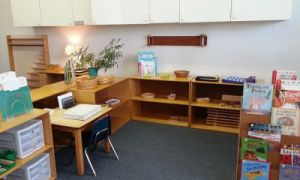Feel Good Feb is dedicated to saying thanks, expressing gratitude, and promoting good deeds and random acts of kindness.
Here are some ideas on implementing Feel Good February with Children and Educators within your service.
For Educators
- Implement the Kindness Curriculum
- Thank the Children for helping throughout the day
- Give each child a Garden Of Kindness
- Set up a garden with families planting a seed on the day the child starts.
- Thank another Educator who you appreciate
- Be a good listener
- Showing Kindness Posters - The Showing Kindness Posters display colourful images in different ways children can show kindness. It's important to include and encourage kindness every day in the learning environment and these posters are visual cues hugely helpful in reinforcing acts of kindness.
- Offer your help to someone
- Remember others’ birthdays and important events, and celebrate them!
- Host an Educator Award ceremony.
- Give all Educators a Certificate Of Appreciation
- Have an Educator Shout Out Wall
- Have a Joke Wall
- Hold a monthly meet-up with all Educators outside of the service
- Swap shifts for Educators who have important celebrations coming up
- Keep spare woman essentials such as pads/tampons, Panadol, heat rub etc in a cupboard that woman can easily access
- in times of need.
- Support one another.
- Welcome new Educators with a welcome basket.
- Have fresh fruit/lollies available in the staff room for Educators to help themselves.
- Encouraging Kindness in Young Children - Teach children to develop kindess and the importance of being kind.
- Create an inspiration/motivation wall in the staff room.
- Step in and offer help to Educators having a "off day".
- Make someone's day by completing a Random Act of Kindness or Pay it forward.
- Teaching Gratitude To Children - Gratitude helps the child to relish good memories and gives strength to fight with all the odds and adversity in life. The following article provides information on the Benefits of Learning Gratitude, Strategies To Teach Children Gratitude and more.
- Display Positive Affirmation Posters - . Positive affirmations are used to create a positive and supportive environment by encouraging children and Educators to be supportive of one another. Affirmations develop an atmosphere where it is the norm to acknowledge and affirm positive behaviours, thoughts and actions.
- Encouraging Phrases Posters - The Encouraging Phrases Posters are examples of encouraging phrases you could use with children throughout the day. These can be displayed within the service as a reminder of positive phrases for Educators to reinforce to children.
- Smile!
For Children:
- Donate unwanted books, toys or clothes to children in need.
- Say thank you to Teachers, Parents and friends.
- Help a friend in need (if they are feeling sad offer a hug).
- Play with younger children at the service.
- Draw or paint a picture for someone special.
- Plant a seed to grow in the centre garden.
- Take care of room pets.
- Hold a friends hand when they are feeling angry or scared.
- Be thankful for what you have!
- Positive Affirmation Flashcards With Pictures - Give each child their own set of positive affirmation cards that they can use daily.
- Smile!
Both Children and Educators need to be acknowledged and thanked and feel good February is a perfect time to start!
Reference:
Feel Good February


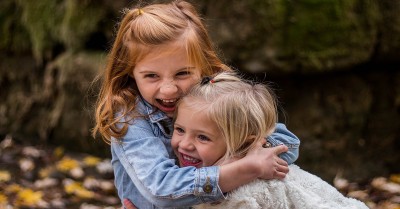
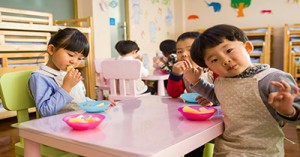
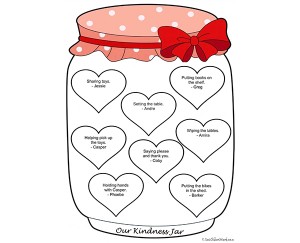

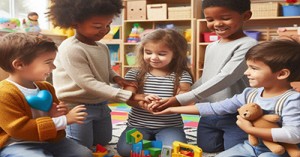
 In Norway and most other Scandinavian countries, children nap in the outdoors. According, to research outdoor sleeping not only promotes better daytime sleeping, but it
In Norway and most other Scandinavian countries, children nap in the outdoors. According, to research outdoor sleeping not only promotes better daytime sleeping, but it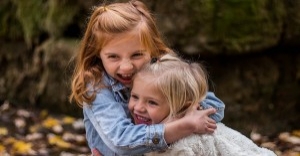 Feel Good Feb is dedicated to saying thanks, expressing gratitude, and promoting good deeds and random acts of kindness.
Feel Good Feb is dedicated to saying thanks, expressing gratitude, and promoting good deeds and random acts of kindness.
 Here’s a comprehensive Mobile Phone and Smart Watch Policy tailored for early childhood education and care (ECEC) services in Australia, aligned with the latest 2025
Here’s a comprehensive Mobile Phone and Smart Watch Policy tailored for early childhood education and care (ECEC) services in Australia, aligned with the latest 2025 Across the early childhood education and care sector, educators are sounding the alarm: current staffing ratios are insufficient to deliver safe, meaningful, and developmentally appropriate
Across the early childhood education and care sector, educators are sounding the alarm: current staffing ratios are insufficient to deliver safe, meaningful, and developmentally appropriate Thanks to the new National Model Code and upcoming regulatory changes under the National Quality Framework (NQF), early childhood services across Australia must now implement
Thanks to the new National Model Code and upcoming regulatory changes under the National Quality Framework (NQF), early childhood services across Australia must now implement In the quiet hum of a weekday morning, something felt off. Preschool doors opened, but classrooms remained silent. No greetings. No redirection. No educators. And
In the quiet hum of a weekday morning, something felt off. Preschool doors opened, but classrooms remained silent. No greetings. No redirection. No educators. And A: In early childhood education and care (ECEC) settings across Australia, mobile phone use by educators is now subject to strict national reforms aimed at
A: In early childhood education and care (ECEC) settings across Australia, mobile phone use by educators is now subject to strict national reforms aimed at The end of the year is a busy and emotional time in early childhood services. Many services close for a short period over Christmas, and
The end of the year is a busy and emotional time in early childhood services. Many services close for a short period over Christmas, and In early childhood education and care, child safety is not just a number—it’s a practice. While educator-to-child ratios are essential, they are only one part
In early childhood education and care, child safety is not just a number—it’s a practice. While educator-to-child ratios are essential, they are only one part Being an educator is both rewarding and demanding. Between planning, documentation, room management, and supporting children’s wellbeing, the workload can feel overwhelming. That’s why practical
Being an educator is both rewarding and demanding. Between planning, documentation, room management, and supporting children’s wellbeing, the workload can feel overwhelming. That’s why practical

